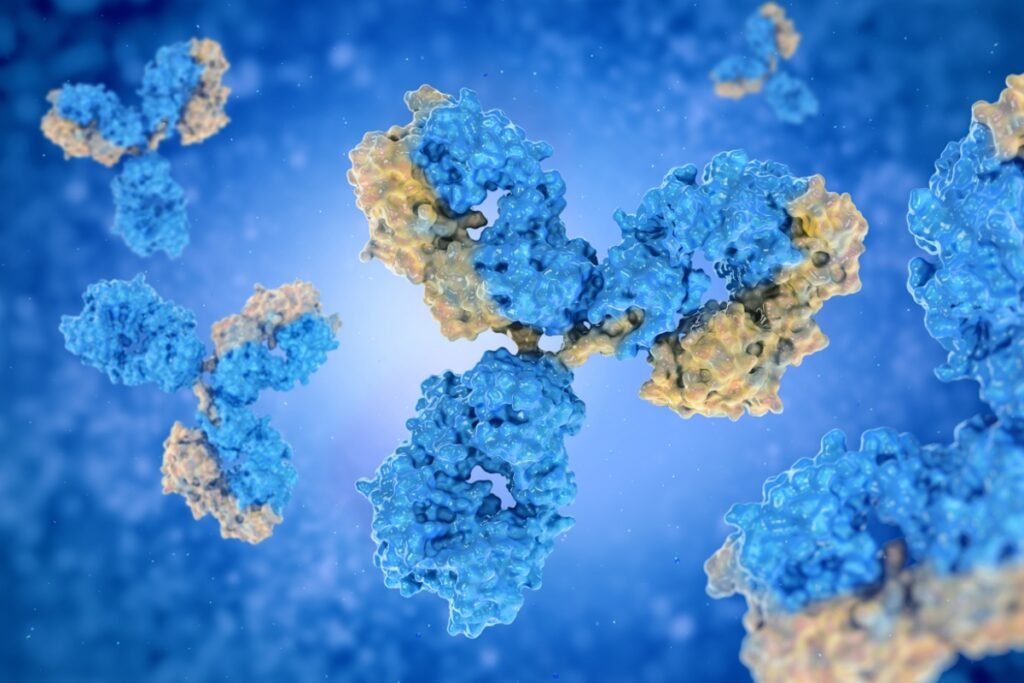Introduction
The landscape of multiple myeloma treatment has witnessed a significant breakthrough with the advent of CD38 Multiple Myeloma Treatment antibodies. This in-depth article explores the vital role of CD38 antibodies in managing multiple myeloma, offering a thorough understanding of their mode of action, effectiveness, and potential advantages for patients. Our goal is to provide healthcare professionals and patients with a comprehensive knowledge of CD38 antibodies, establishing this article as a reliable resource in the field.
Multiple Myeloma: A Brief Overview
To comprehend the significance of CD38 antibodies, it is crucial to understand the basics of multiple myeloma. Multiple myeloma is a hematological cancer marked by the abnormal growth of plasma cells in the bone marrow. This disorder results in the excessive production of monoclonal antibodies, leading to various complications such as bone damage, anemia, and kidney dysfunction.
The Rise of CD38 Antibodies
CD38, a glycoprotein found on the surface of plasma cells, plays a pivotal role in the development of multiple myeloma. Consequently, targeting CD38 has become a key focus in therapeutic advancements. CD38 antibodies have showcased their potential to enhance patient outcomes through several mechanisms.
Mechanism of Action
CD38 antibodies, including daratumumab and isatuximab, exert their therapeutic effects through multiple pathways. Their primary mode of action involves:
Direct Tumor Cell Killing: CD38 antibodies attach to CD38 receptors on malignant plasma cells, resulting in antibody-dependent cellular cytotoxicity (ADCC) and complement-dependent cytotoxicity (CDC). This dual mechanism effectively initiates the destruction of tumor cells.
Immunomodulatory Effects: CD38 antibodies boost the immune response by stimulating the activation and proliferation of natural killer (NK) cells, further assisting in tumor cell elimination.
Indirect Effects on the Tumor Microenvironment: CD38 antibodies disrupt the protective microenvironment surrounding multiple myeloma cells. By inhibiting adhesion molecule interactions, these antibodies hinder tumor cell growth and decrease resistance to chemotherapy.
Clinical Effectiveness
Numerous clinical trials and studies have underscored the remarkable effectiveness of CD38 antibodies in treating multiple myeloma. These agents have demonstrated significant benefits across various disease stages, including:
Newly Diagnosed Multiple Myeloma: CD38 antibodies, when integrated into induction therapies, have displayed substantial improvements in response rates and progression-free survival (PFS). Their incorporation into standard regimens has become a cornerstone in the treatment landscape.
Relapsed or Refractory Multiple Myeloma: Patients who have relapsed or are refractory to previous therapies often face limited treatment options. CD38 antibodies present a promising alternative, showcasing exceptional effectiveness in terms of overall response rates and extended survival.
Maintenance Therapy: Post-transplant maintenance therapy with CD38 antibodies has proven the ability to delay disease progression and enhance overall survival, emphasizing their role in long-term disease management.
Safety Profile
As with any therapeutic intervention, comprehending the safety profile of CD38 antibodies is vital. Extensive clinical trials have suggested that these agents are generally well-tolerated. The most frequently reported adverse events include infusion-related reactions, neutropenia, thrombocytopenia, and respiratory tract infections. However, appropriate pre-medication and monitoring protocols effectively manage and mitigate these risks.
The Future of CD38 Antibodies
The significant progress made in the field of CD38 antibodies has laid the foundation for ongoing research and development. Scientists and clinicians are investigating innovative therapeutic approaches, combination strategies, and next-generation CD38 antibodies to further optimize multiple myeloma treatment outcomes.
Conclusion
CD38 antibodies have revolutionized the management of multiple myeloma, providing patients with renewed hope and improved outcomes. By targeting CD38-expressing cells through various mechanisms, these antibodies have demonstrated remarkable efficacy and safety in both newly diagnosed and relapsed/refractory patients. As research and clinical trials continue to reveal the potential of CD38 antibodies, their role in multiple myeloma treatment is set to expand further, ultimately leading to enhanced patient outcomes and improved quality of life.





























